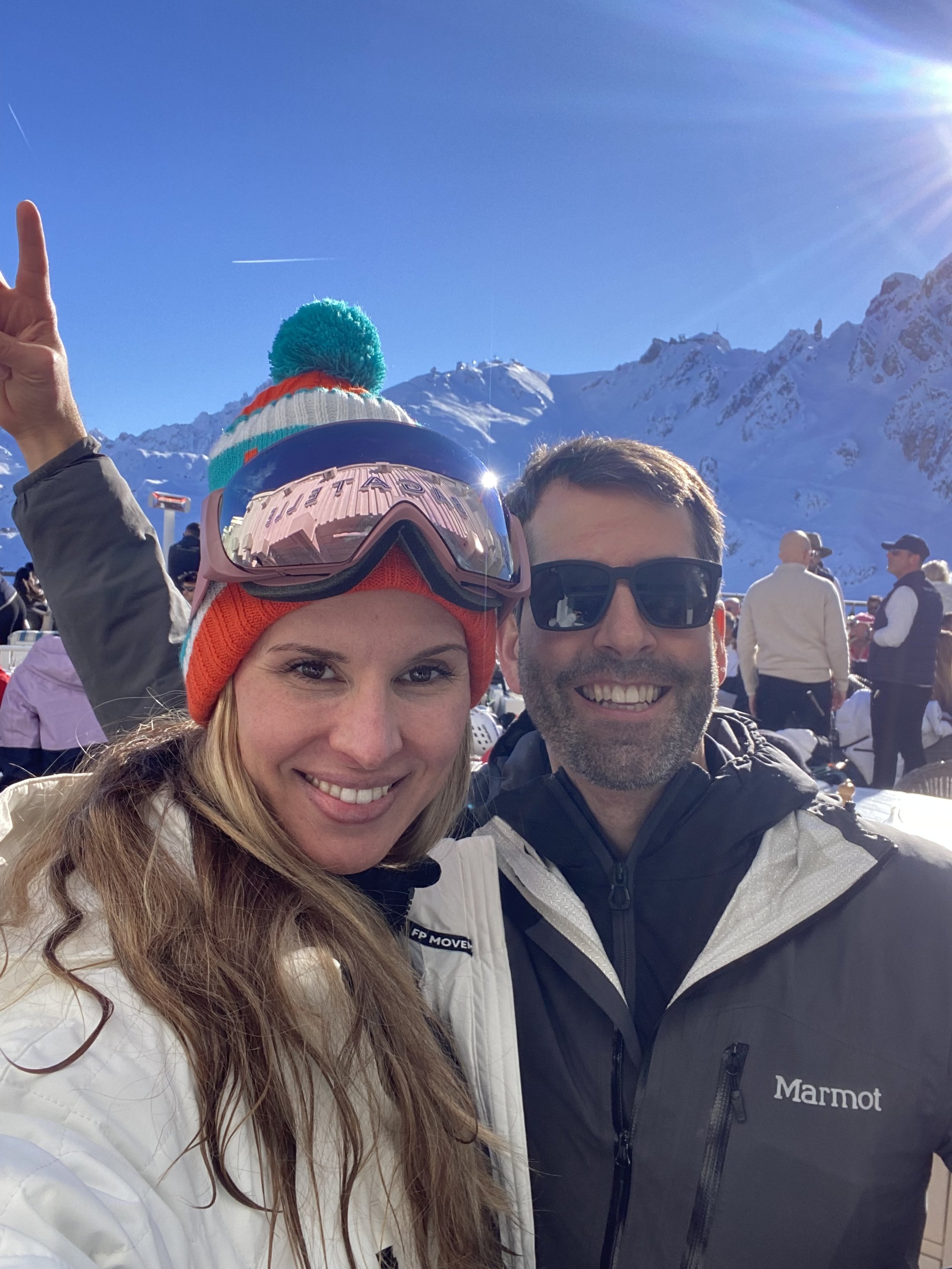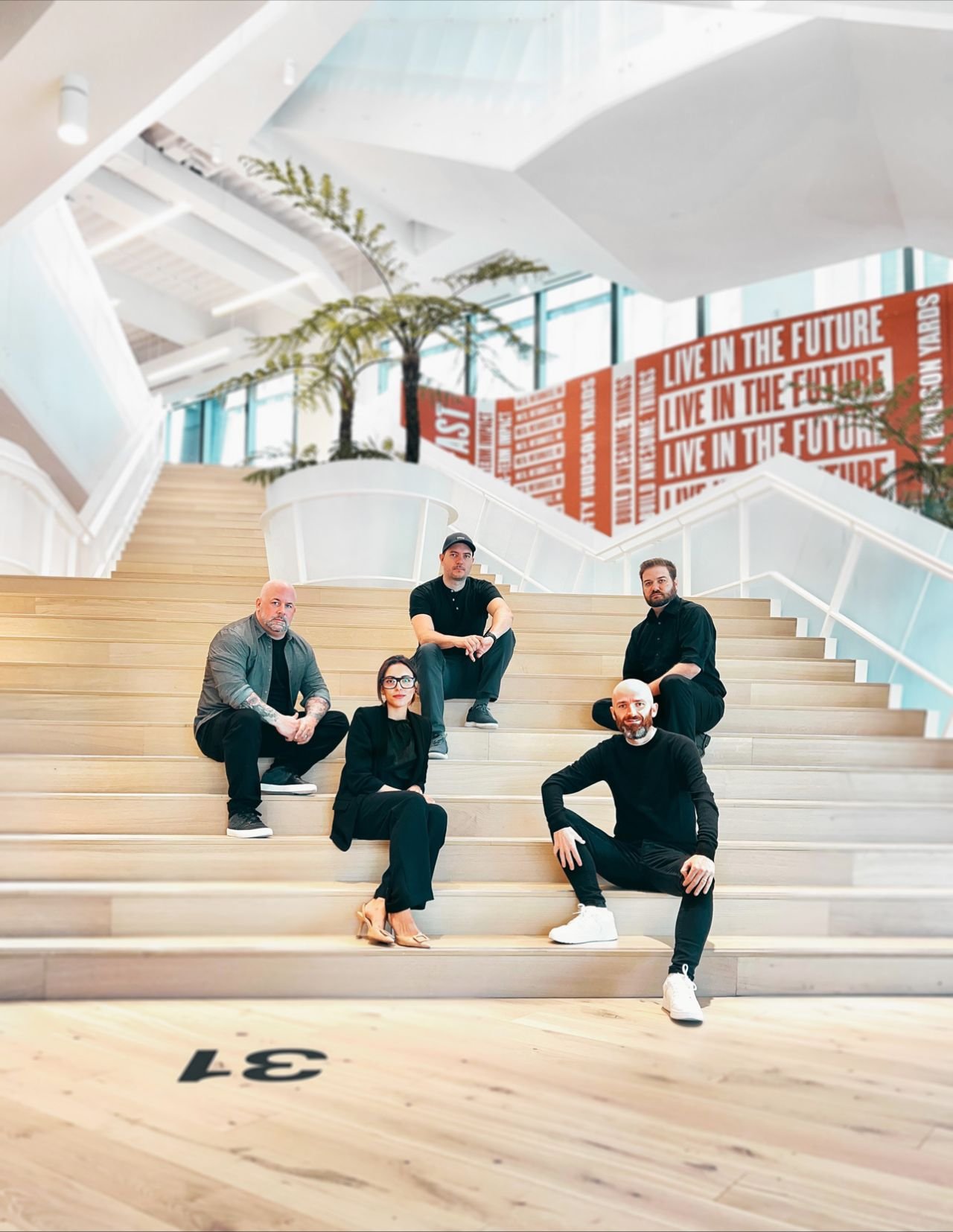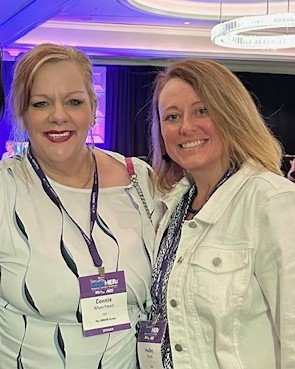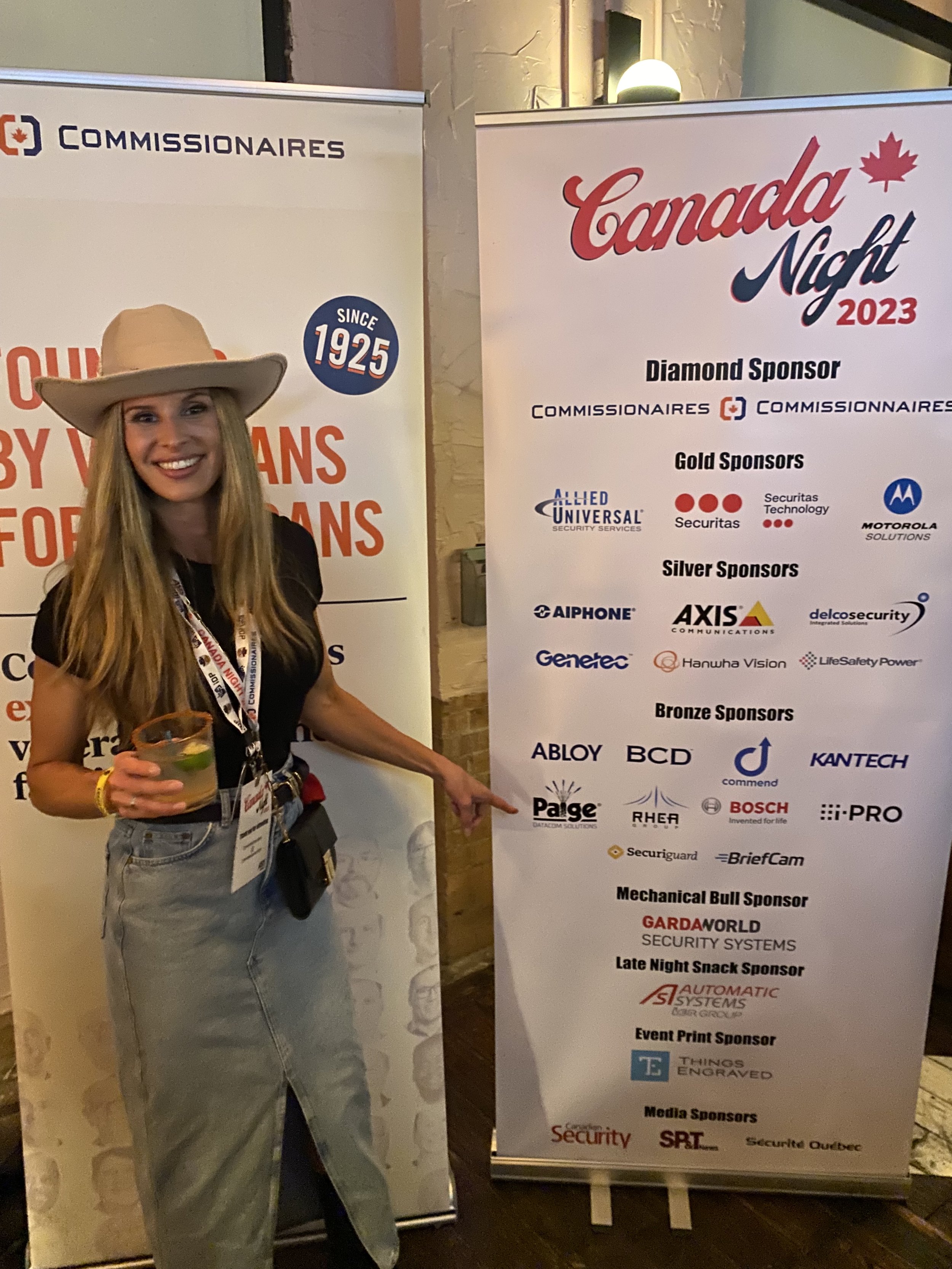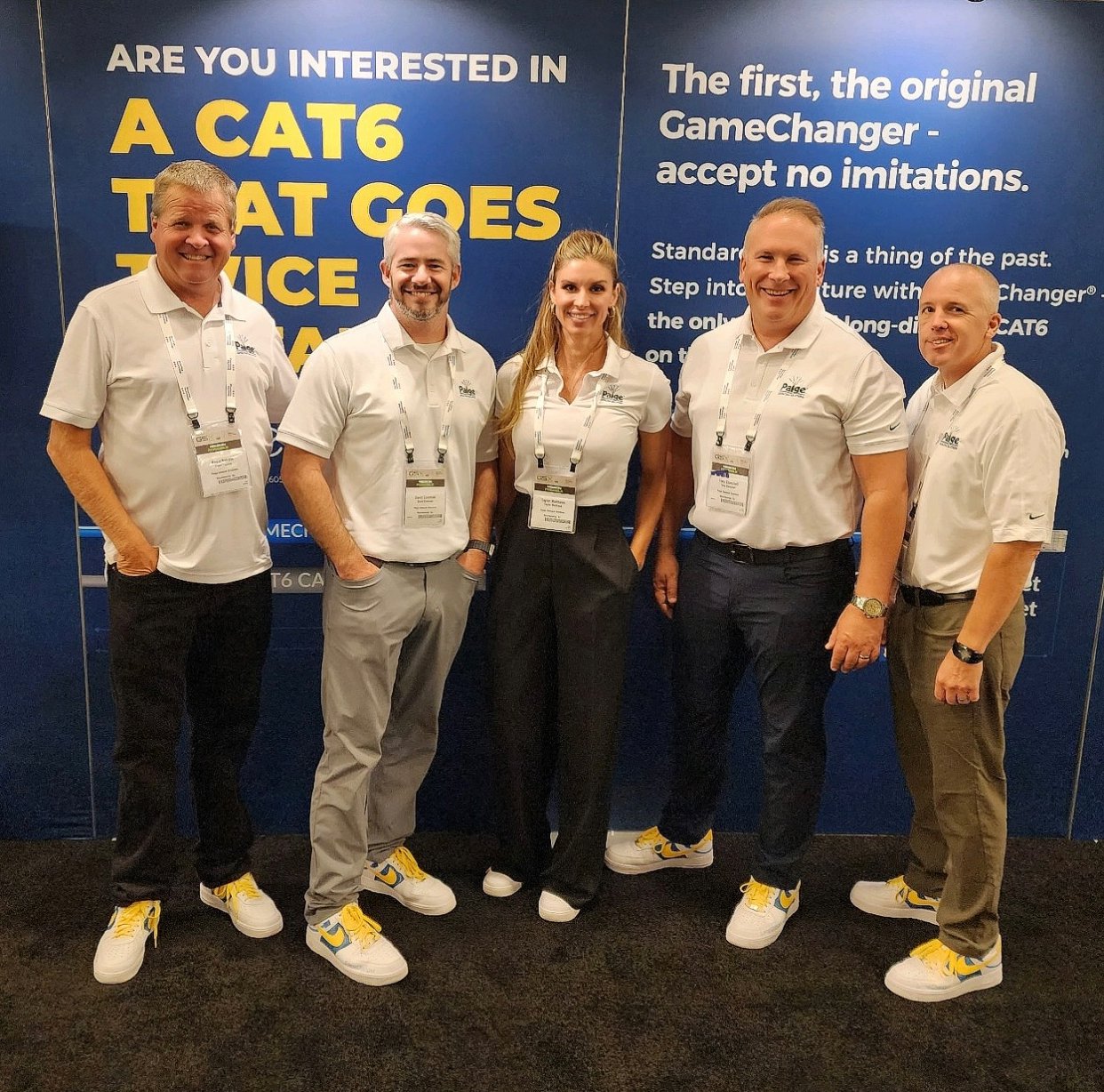Secure Women: Leading in Security Initiative
Taylor Matthews (top left) - Sales Director for Paige Datacom USA and Canada; A market specialist for wire, cable, and more that directly assists system integrators and the security industry
Connie Moorhead (top right) - Owner and CEO of the CMOOR group; an ed-tech firm focusing services to the security, fire, and life safety industry | Women in Security Forum Power 100 Honoree | STEM Mentor
Paula Balmori (bottom left) - Global Director of Security Design and Integration at Brivo; a cloud-based access control company | Board President of the Secure Building Council | Architect
Rebecca Bayne (bottom right) - President, Founder, and Owner of Bayne Consulting and Search; Firm focusing on recruiting talent in the physical security integration industry
March 8th, 2024 | By Sadie Stiles & Brandi LaVarnway
In honor of International Women's Day, we're excited to launch this initiative dedicated to celebrating and learning from women in the security industry. We've reached out to four remarkable women leaders and asked them nine insightful questions to uncover their perspectives, experiences, and wisdom. Through these interviews, we aim to inspire, empower, and amplify the voices of women in security, showcasing their invaluable contributions and paving the way for a more inclusive future. Join us on this journey as we delve into the insights and stories of these inspiring women.-
TM: “I truly feel that the Security Industry is a great industry for women, and I often encourage other women to seek out roles within the industry. However, my career path into the industry was entirely accidental! I met the Vice President of Paige DataCom David Coleman back in 2018 at a tradeshow and finally joined the amazing Paige team in November of 2019. Prior to Paige, I was working in industrial sales selling custom safety cutting tools and was working closely with the pharmaceutical manufacturing industry. I had worked in pharmaceutical manufacturing validation prior to that and was somewhat intimidated by working with the Security Industry. I was so impressed with David and his team that I knew I had the potential to learn everything I needed and was very eager to grow the sales of our innovative GameChanger™ Cable solution.”
CM: "I kind of fell into it. I was working in the construction field, like I said 24 years ago, and was doing data mining for a company that was in the construction arena. Back then, security was an afterthought. So, you built the building and then you said, 'We better secure it.' Nowadays, it's specified very differently. So, I learned a lot about the security space from working that job. They went through about 16 million dollars in VC funding in nine months, so I saw the writing on the wall that that company was not going to last. But I was creating training for them as well, and so that's always been kind of my passion."
PB: “So what inspired me to enter into the security world—my background is an architect, but when I was in undergrad, I did a few years abroad in San Diego because I'm originally from Spain. My degree was kind of weird because each year was in a different place. So I ended up in San Diego where I met a lot of Navy Seals, and they kind of opened my eyes in terms of how underdeveloped the military bases were overseas when it came to the architectural site and perspective of security. Ever since then, I thought that was a problem that I wanted to solve. And ever since then I just did any job, internship, study, and also during my masters, anything related to security design or physical security design and force protection design and now technology design and security technology. To educate myself from all these different perspectives because I work for Architects. I work for integrators. I work now for manufacturers, end users to kind of see all the different perspectives that are involved in the main decision-making of security design strategies or security technology into projects and long story short, that's how I ended up in security and loving it so much and now I feel like it's a trendy thing, the security world is getting more and more popular, especially with integration of technology. And so yeah, very excited to be part of this industry and helping anyway I can.”
RB: “I was actually working in an IT search firm, and one of the people I worked with in that firm was the wife of a gentleman who was a VP of sales for a major manufacturer. He was heavily involved in the security industry and he knew that what we were doing in IT would soon be closely related. At some point, the manager I was working for in the IT firm decided to go work for one of our clients. He said, 'Hey, you're on your own. You can keep working in IT on your own.' I tried that for about a year, and it was really lonely and difficult. Meanwhile, this other gentleman just kept saying, 'You could bring that IT knowledge to the security world.' One of my former bosses was starting a search for the security industry, and I'll tell you, they were relentless between the two of them. I ended up finally interviewing, and the rest is history. I also have a previous background in construction management and other business management roles, but that construction piece—you never know how all the things are going to come together in your life. And those have all played well into what we do with integrators.”
-
TM: I have observed that women make great leaders in the Security Industry. They often are excellent bigger picture thinkers. Women predominantly operate within the industry with humility and do an excellent job of surrounding themselves with strong professional teams even when that means hiring or working among individuals with superior technical knowledge or expertise.
CM: "So many. I mean, when you're talking about direct security like a guard or something like that, I think that women have very unique skills. We tend to be verbal instead of physical, and so because of that, they are able to talk people down. They're able to calm a situation. So, from that perspective, I think it's essential that women are in the field. And then, if you're talking more of the corporate world and an integrator or a manufacturer, women just have communication styles. I mean, we get passionate about the work we do, and so bringing that passion to the industry is so important too."
PB: “So first of all, we need to think that security— it’s about people. It's not about making processes faster, it's not about creating new material— It's about protecting people. At the end of the day, it's a very mission-driven industry. As women, we are a lot more empathic when it comes to really understanding other people in the room and what they're going through. We are very good at bringing everybody together and all the different stakeholders and understanding all the different perspectives and how it might impact our end user, our client, ourselves, etc. So I'll say that's one of the biggest assets that women bring to the security industry. Second of all, I think the more diversity you bring into a group, the more unique solutions you can end up creating. Women, or if you're from a different country like myself, — Just having a different perspective from a different background is going to make your company richer in terms of the solutions and ideas and a stronger team that you bring to the table”
RB: I am convinced that we are innately more detail-oriented, sometimes to our detriment, right? There are occasions when we should simply cut to the chase, but these attention to detail allows for much more in terms of teamwork, collaboration, and forward-thinking. This ability to see beyond the immediate moment to where we might be going has been a significant contributor to the success that women are experiencing. We simply perceive things differently than men do, naturally. I have experienced countless instances where, working on projects with predominantly male teams and clients, I would propose an idea that they would find remarkable. They would often remark, 'Wow, that's an amazing idea. I would have never thought of that.' This phenomenon is purely due to the way we're wired."
-
TM: Curious.
CM: Confident.
PB: Determined.
RB: Tenacious.
“First of all, we need to think that security— it’s about people. It’s not about making processes faster, it’s not about creating new material— It’s about protecting people. At the end of the day, it’s a very mission-driven industry. ”
-
TM: Technological innovation gets me suuuuper excited—I’m a big nerd! Women can catch an edge and stay ahead by remaining informed of cutting-edge technology and industry trends. I encourage everyone to stay open minded to change and innovation.
CM: "What part of my work inspires me the most is definitely meeting people. So, the business development sales side of what I do is what I love the most. I would do it all day if I could. I don't like numbers, so when I have to, I can't just jump on the desk. So, when I have to get into finance and that sort of thing, I get a little cross-eyed. But as far as STEM mentoring, I think it's incredibly important. I do some of that myself, and I know a lot of other women in the industry do, especially those that are more on the cyber side of security. But it's not limited to the cyber side by any stretch, so I think that putting together programs like Security LeadHer that we just had the first time last year are also very important because we're able to bring together women that are like- minded and have programming that is geared just for women."
PB: I know this is a buzzword, but anything related to artificial intelligence. The systems are becoming more and more intelligent and user-friendly. For example, I'm sure all of you have already used ChatGPT. That capacity of being able to just normally word a sentence that gets translated into an action for the technology, I'll say that is a fantastic feature that I'm very excited to continue to see get better. And Security in terms of we're going to be able to identify threats faster, we're going to be able to minimize risk in a much more efficient way, etc. So just automating all the processes, making them faster and better, that's kind of the side of our industry that really excites me the most. Additionally, anything related to NFC. That user experience is unbeatable. I hope everybody just realizes that NFC is going to be the future. It's already the present, but it's going to be more and more permanent in our lives and that seamless interaction of entering spaces. It's just going to become better. So that's another part that I'm very excited to see.
I would encourage women to truly find their purpose. What's your mission? What are you doing this for? Are you doing this to save lives? Are you doing this to improve the technology in the security world? For me at least, I would not be able to do what I do if I didn't have a clear idea of why I do it. We might be the minority still in a male-dominated industry, but how do you stand out? I've seen it because I see many women leaders in the security industry. They have a very clear ‘why,’ so if you want to be successful and stand out as a woman in the security industry, find your ‘why.’ It’s going to ignite all the steps that you're taking.
RB: "For me, one of the most powerful advances in technology that allows us to push ourselves forward in our lives, in our careers, in everything, is truly with social media and the access we have to so many communication tools. I believe that what we can do with our personal branding, and then also just in general, to always be reaching out and communicating proactively is remarkable. We are in a place now where you can't even imagine we would have been there 30 years ago, 20 years ago. I think that this advancement allows all of us, but especially women, to accomplish more."
-
TM: “Be prepared and know who is in the room and how they might be FEELING. It is important to consider that everyone makes emotional decisions that sometimes outweigh the facts. Sometimes people’s emotional investment in a project, product, goal etc. strongly outweigh the facts or even sometimes cost benefit and that emotional tie should always be considered as highly important and powerful.”
CM: “I would say to pursue what's in my heart, to trust my gut, and to have no fear.”
PB: “Continue to listen to yourself. don't let others tell you that your ‘why’ doesn't matter. if it matters to you, it matters.”
RB: “This is a two-part answer, but one of the things that I've always said to myself when I found myself in a bad situation is, 'You should have listened to your gut.' From an early age, I saw examples of this, and I know that again, women's intuition is a real thing. We do have, I think, sometimes a better ability to perceive what's happening in circumstances or with people, or whatever the case might be. Every time I have not listened to my gut or just kind of ignored it, I got myself into a situation where I had to rewind and listen to my gut. So, I think that's the number one thing, and I think part of that is then utilizing that gut instinct to surround yourself with people who uplift you, push you ahead, help you strive to reach for more. I am a super kind person, and I try not to have a 'savior' thing going on all the time, but part of what I've done incorrectly in my life at times is I've tried to help everybody, and you can't help everybody. You have to be able to say no. So that's the whole, again, listen to your gut, know what makes sense, know when it's the right time to walk away or dive in deeper."
-
TM: “The industry is really making great space for us and it has become increasingly welcoming. I personally participate and attend female focused industry and networking events and find them very insightful and powerful. I have noticed a strong uptick in the support and effort made to encourage women to be a part of the industry.”
CM: “It's evolved tremendously in a positive way because when I first started, I had several potential customers just flat out say they would not work with us because a woman owned the business. And I don't get that anymore. The way that it's evolved, I think most dramatically, would be in the openness that men are to women leaders. I think more men are recognizing the value we bring and are becoming allies and advocates for what we're trying to accomplish."
PB: “One thing that I've seen evolve is that companies have realized the importance and value that diversity brings to companies, and so one improvement that I've seen is more C-suite type roles open for women which I think has truly helped shift and steer the industry in fast-paced, revolutionary, innovative type of way.
Give more women a seat at the table. I mean not just a seat at the table, a voice at the table.”
RB: “When I first entered the industry in 2001, it was about a year later that I attended the first big trade show, ISC West, which is quite significant. In three days, I do not exaggerate when I say that I might have seen 25 to 30 women, while the rest of the show floor, with thousands and thousands of people, was dominated by men. The fact that we're more present now is a huge advancement. Early on, most of the females I met were either in human resources or sales. However, one of the best advances for women in security, I believe, is the rise of strong technology leaders and women in engineering and software design roles. I'm seeing an endless amount of technical strength from the female side of our industry, and I love that. I've also had other engineering leaders, who are men, say to me, 'It's so great to have women on the team because they see things we don't see.' This ties into diversity overall; the more diverse perspectives you have on a team, the better the team can support itself and function overall. I think that's probably the best thing—seeing more women in technology and leadership roles than ever before."
“I feel like what we do here, no matter what our role is and whatever kind of company we are, all contribute to a higher calling, which is protecting people. Really, what more could you ask for?”
-
TM: “The core mission of our Paige DataCom team is to innovate and overcome industry challenges with outstanding cabling solutions. The Paige GameChanger™ Cable was ultimately created to solve the issue of having to install IP devices more than 328 feet away from the network which requires additional and unnecessary time, hardware, terminations and touch points. When I joined the Paige team back in 2019 our primary focus was to make people aware and comfortable with a Cat6 style cable that could tackle long distance cabling challenges. The Security Industry took to the product very quickly as it was an excellent solution for security cameras located at the edge of buildings or out in parking lots.
A key lesson I have learned along the way is to investigate and interview to help guide people to the solution they are in need of. Asking very specific well thought out questions and listening 10x as much as I speak has guided me in better serving my customers and my team at Paige. “
CM: "I think every challenge or failure is an opportunity to learn. It's not failure in and of itself; It's just another chance to learn. And I always think of the quote from Mark Twain where he said, 'I was successful at quitting smoking all 100 times.' It just plays into the idea that there are times in your life where you have to try over and over again to get it. But what that has taught me is a lot of resilience, to not be too hard on myself, and to not take things too seriously."
PB: “I love this question. I would say I'm a very rational person when it comes to facing challenges. We all go through hardships. Whatever it is, even if it's during your morning workout — and I'm just going to make a very simple example — I compare a lot of my challenges at work and in life with workouts because I feel like my workouts sometimes provide solutions to my problems. What is the next thing that you can tackle? I know sometimes in a 60-minute workout it can be like, "My God, it's so hard," but focus on the exercise and that next step you have to take, not on how challenging the journey can be. What is the first thing that I need to accomplish? What is the next thing after that? So just break it down into steps with a very clear objective of where you're heading and a very clear reason for why you are doing it.”
RB: “I have two ideas about this. I think that the very first thing that we need to do when we are facing a challenge, even if it's a massive one and feels like a mountain we'll never overcome, is to pause and wait. Give it some time in your mind and in your heart. I know there are situations when we have to react quickly, but even then, I try to encourage people to give it some time if possible, to stall a little bit for the solution. Nothing comes to us quickly when we're under extreme pressure, and this applies to both men and women. There have been times when I was dealing with a terrible challenge, one that felt insurmountable on a Friday, but by Monday morning, it looked completely different. Also, never assume anything when faced with a challenge because we assume so much. I think it's typical human nature; we want to bring in all of our own background and experiences and think we know what's going on. Again, if you reach out, get other people involved, and give it some time, then come back to the table with however you're going to approach that challenge, you'll be much better off than if you just dive in immediately."
-
TM: “Helping people is always at the center of everything I do and I have always wanted to be a key contributor and leave a positive impact. The Security Industry has a core value of looking out for people and keeping people safe. I’m very attracted to that value system!!! I want to make sure that I represent myself and other females in the industry in the best way possible to uphold the core mission of the security industry. I want people to feel like they can really count on me to have their back and provide them with a winning solution. Often as the only female in a meeting, I want people to not even think twice about my gender but know me for my values, work ethic and desire to really help people solve challenges. Ideally, I want all the females in this industry to be known for who they are and what they bring to the table and not their gender. “
CM: "I'm very blessed in that regard. Even after a quarter of a century, I still wake up every morning excited to work. I love what I do, and part of that is because of this industry, even with the challenges that we've been discussing. I find that this is one of the most supportive industries I've ever worked in. I mean, if you need help and raise a flag, you're likely to have ten people offer to solve your problem with you. And it's not always like that. Even if they work for the competition, they want to help. So, I think some of that naturally comes because I love what I do. But it's also important to find focus and say 'no' more than you say 'yes.' I did a presentation on that at the Security LeadHer conference last year, on the art of saying no. As women, we are often programmed to say yes to everything, to fix problems, to just be there. And it was Steve Jobs who I think coined the concept best of saying no. You have ten projects, you pick three to do, and you have to let the other seven go. Because we just can't be all things to everyone. And that's deeply ingrained in so many of us. I would say no is a complete sentence. You don't have to give an explanation. You don't have to tell why. You just can say no."
PB: “I do have practices or things that I do in my day-to-day to remind me of my why, and that's, first, surrounding myself with people that inspire me. That's a big one. You know what they say, you become the five closest people in your life. So if you don't have your five closest people inspiring you to become better or challenging you directly, I would suggest just listening to five people and podcasts that inspire you. I know sometimes we get busy and you might not be able to contact your five people all the time, but at least listen to podcasts or read books of people and stories that inspire you and remind you of your 'why.' When life gets busy and hard, I try to do those things to ensure that I myself am inspired, and my team and the company are inspired.”
RB: "This is the easiest part of my work since joining the security industry, so I tell people this every day: I feel like what we do here, no matter what our role is and whatever kind of company we are, all contribute to a higher calling, which is protecting people. Really, what more could you ask for? I think when you combine that with the nature of people in this industry, so many of them generously offer to help you and reach out to you. I think that's so much of what we do here every day, and that creates passion. I love it. I'm so thankful. Seriously, guys, I'm so thankful."
-
TM: “You really can do it all if you set your mind to it, but do not get discouraged if you feel you cannot do it all at once. Pick one to three things and tackle each one at a time. You will get to where you are going more effectively that way.”
CM: “I think sometimes we tend to dim our own light, maybe because we're taught not to draw too much attention to ourselves, or perhaps we prioritize giving credit to others even when they haven't contributed much. Self-care is crucial to me, whether it's taking a 10-minute break in the middle of the day, stepping away from my computer, or indulging in a spa day to recharge.
My favorite mantra, if I have one, is "I'm a duck." I repeat it to myself countless times a day. Just like water rolls off a duck's back, I let things slide off me. I remind myself of this especially during meetings or challenging situations.
Additionally, it's important not to be afraid to speak up. It's okay to assert yourself and express your needs. Many men may not even realize their behavior, as it's often ingrained in them from upbringing or habit. Sometimes, it's necessary to challenge and change these patterns by speaking out.”
PB: " ‘Be worthy of your sufferings.’ That's a quote by Viktor Frankl, which is from the book, Man's Search for Meaning. If you want to truly achieve something meaningful in life, you have to understand that suffering is part of the game and sacrifices are part of it. So be worthy of your sufferings, be worthy of your sacrifices. That's the mantra that I lead by because you're going to have to go through some hardships. So that's how I see life, and that's why when I go through difficult moments or things that I dislike, I'm like, okay, this is just helping me get there and making me stronger. It's part of life.”
RB: "So besides that whole 'listen to your gut' thing, there's actually a Bible scripture, 'there is wisdom in a multitude of counselors.' Part of the benefit of building your own personal network is finding people. They don't all have to be mentors—I think that word is a little overused anyway—but what they become is your own personal advisory board. If you demonstrate to them how much you respect them, it's just natural that they will come back to you and say, 'Hey, I'm here for you if you ever need anything.' And again, this is a curious characteristic of this industry that I never saw in construction management, or in IT, or in any of the other fields that I worked in—people just naturally want to help lift others up, especially those of you who are younger. We really love seeing those kinds of individuals rise in the industry. And I think that's the thing—is to find your multitude of counselors. Tap into that wisdom. We all bring strength, but what we can get from others is extremely valuable."


